Engaging Activities for Kids with Autism: Unleashing Joy and Learning
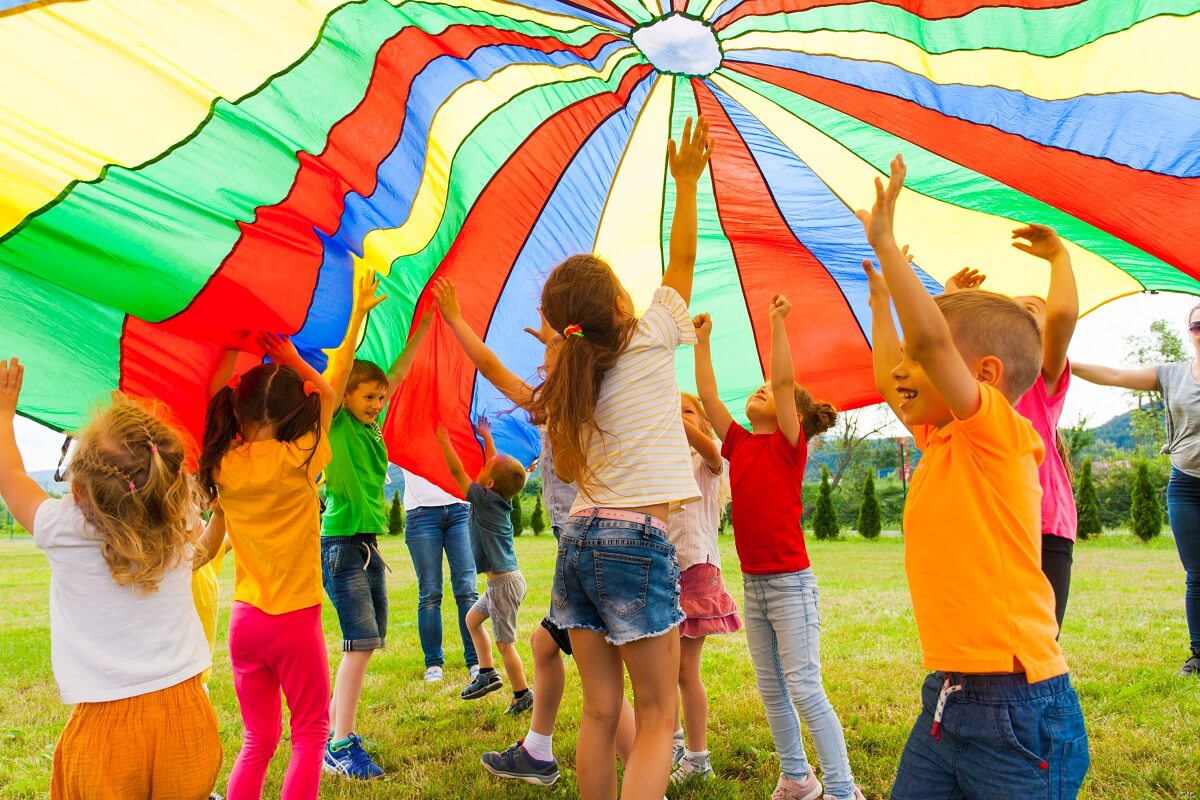
As any parent will know, keeping kids busy is a top priority. Children that are deprived of fun and engaging play will often go on to experience poorer outcomes than those who engage in meaningful activities. This can be across many areas in life—education, socialisation and health. This is why it’s so important to make sure that all kids have plenty of fun and interesting play activities as they grow up. For parents and support workers of children with autism spectrum disorder (ASD), this can be a bit more of a challenge.
Children on the autism spectrum may experience sensitivities to specific sensory stimuli, leading to distress. For certain individuals with autism, this sensitivity can manifest as challenges in communication skills, play skills, socialisation, behaviour and regulation, making it challenging to identify avenues for nurturing a child’s interests.
At St Jude’s we offer a transdisciplinary approach and collaborate as a team to determine the most beneficial therapy strategies for child and family. Our specialised team of therapists include Occupational Therapists, Speech Therapists, Physiotherapists, and Positive Behavioural Therapists.
Our goal is for children with autism to be empowered to participate in meaningful activities, develop the skills that are important for their success at school, and achieve a better quality of life by reaching their full potential.
This blog will explore some enjoyable activities designed to engage and entertain children with autism.
Sensory play
All young children can benefit from sensory play, but there’s a particular importance of sensory activities for autism diagnosed children.
Individuals with autism face difficulties in effectively regulating their reactions to sensory information. Consequently, they may experience significant distress and feelings of being overwhelmed when exposed to loud noises or unfamiliar textures.
You’ll need to ascertain which sensory inputs are distressing for your child, so some of the following play activities may not be suitable for all children.
1. Scented playdough
Add things like lemon juice, vanilla extract, cinnamon, peppermint flavouring etc to separate batches of playdough and get them to guess the scents. Just make sure they don’t eat it!
2. Create a sensory ocean
Fill a shallow storage container with sand on one side and water on the other, and include things like shells, toy fish and other ocean inspired items. Some children will enjoy splashing the water, playing with the sand and enjoying their new underwater world. If you want to avoid water or sand, you can use blue water beads or dried rice instead.
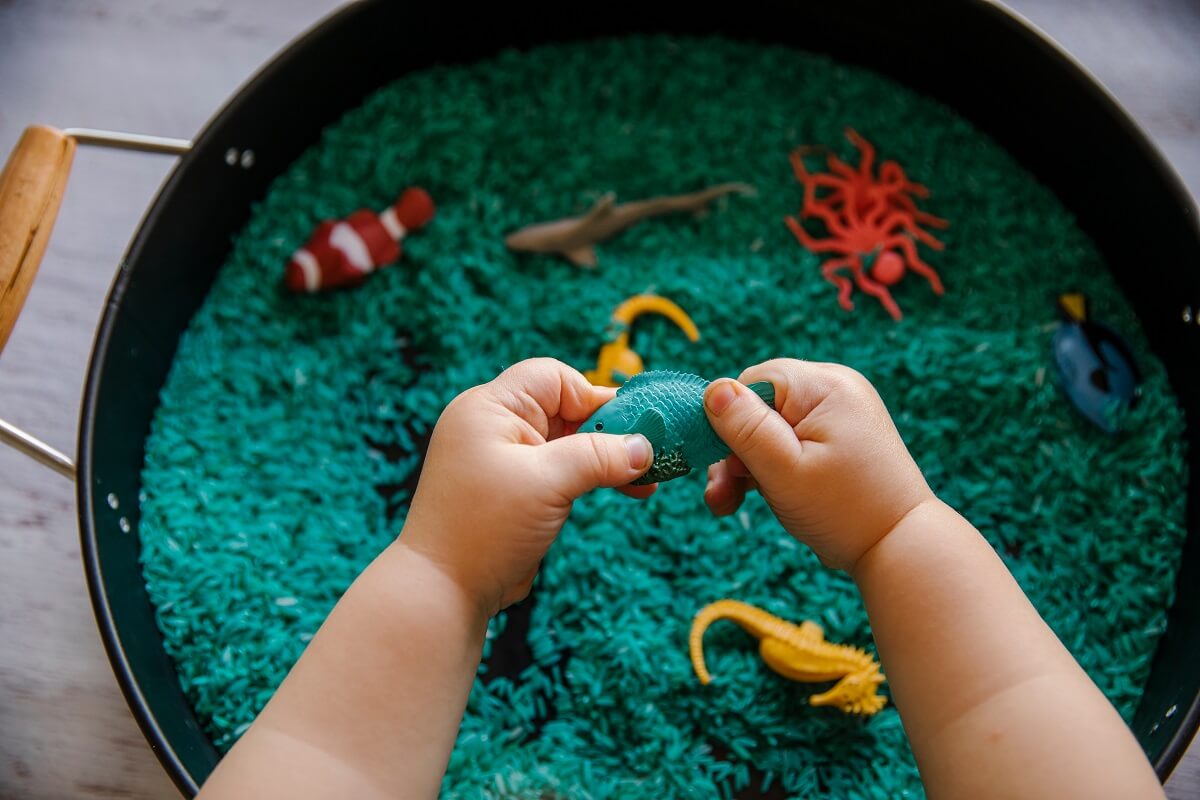
3. Make your own slime
Mix cornflour and water together in a bowl and watch as it shifts from solid to liquid as you play with it. Add in food colourings and glitter for a super sensory experience. Be careful with the glitter, though, as a spillage will leave you finding sparkly bits all over the place for the next few years!
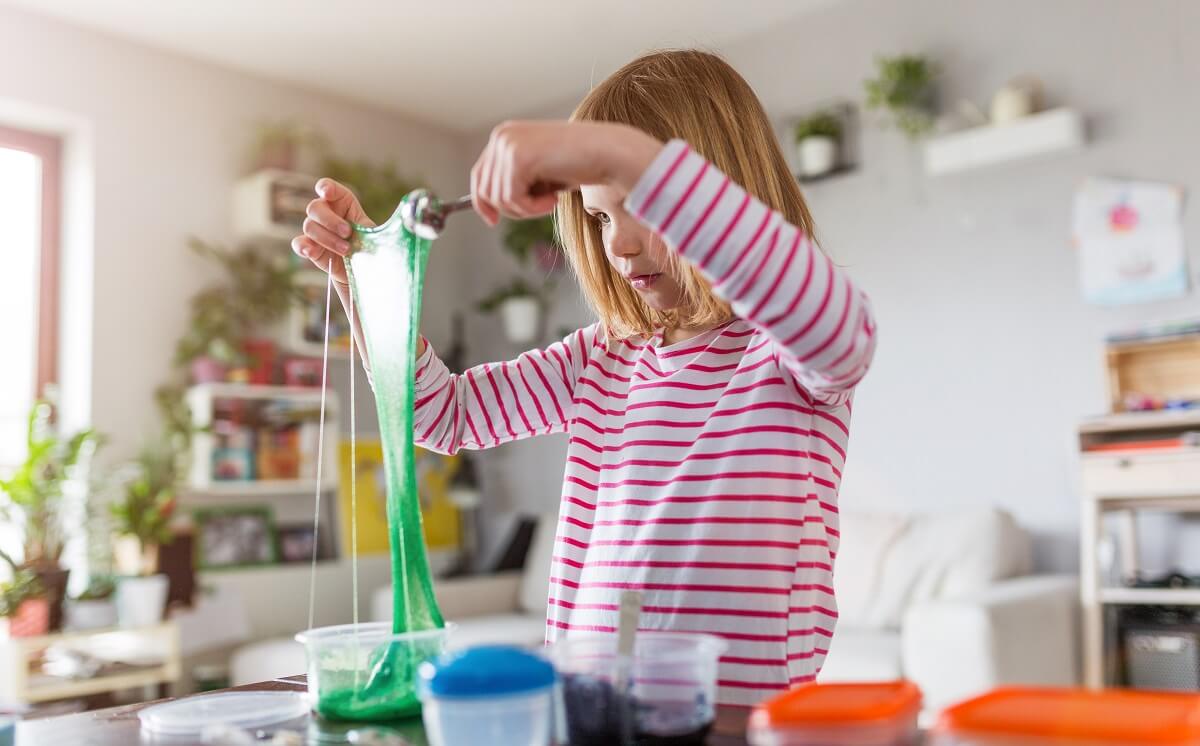
4. Finger and footprint painting
It might be a little messy, but don’t let that put you off as this is a great way for kids to express themselves. Just set some paper out on top of newspaper or tarpaulin and let the kids create paintings using their hands and feet.
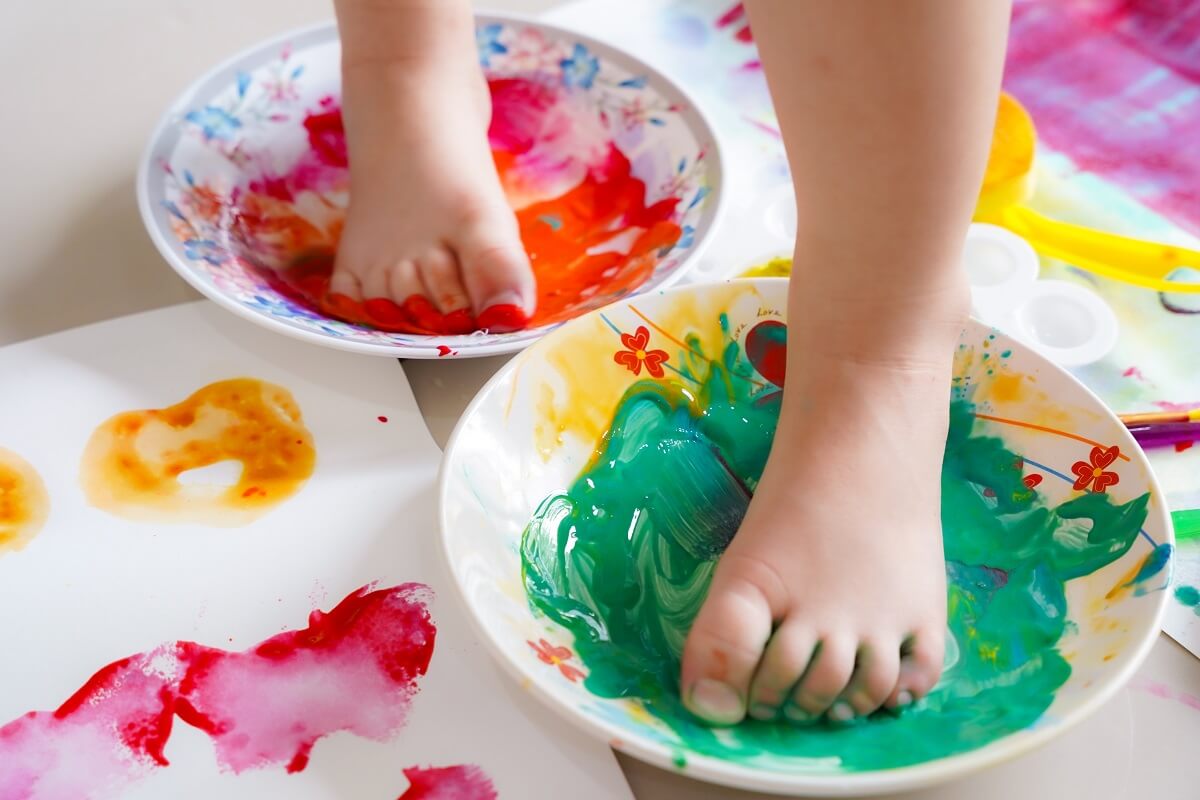
5. Water beads
Water beads are non-toxic and feel so satisfying to play with in your hands. You could even try putting half in the fridge and the other half in warm water to create a contrast between cold and warm.
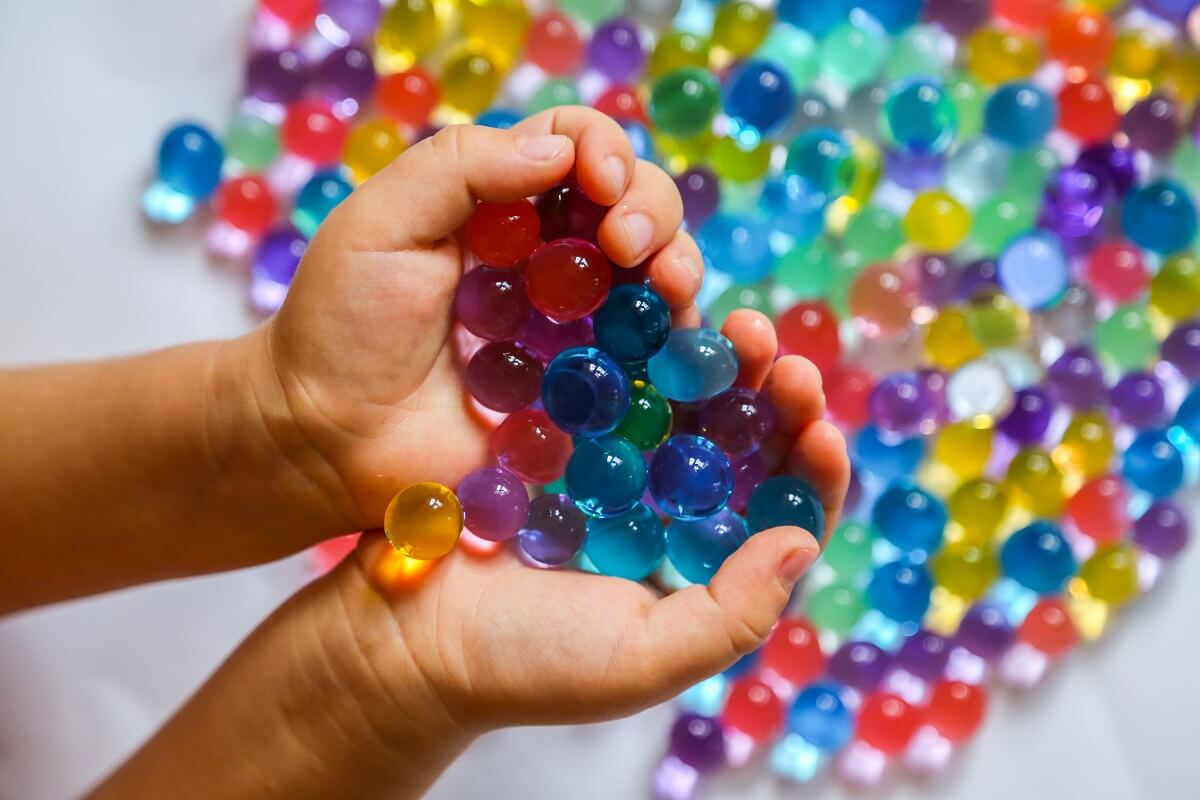
Social skills activities
Social interactions can be difficult for kids on the autism spectrum so it’s good to try some fun ways to develop those skills which will help them form bonds with others throughout their lives. These are group activities that can be done in playgroups or at school.
1. Sharing time
Have one kid in the group bring something that they’d like to share with everybody. This will not only show kids with autism how to discuss their interests with others but also how to practice active listening.
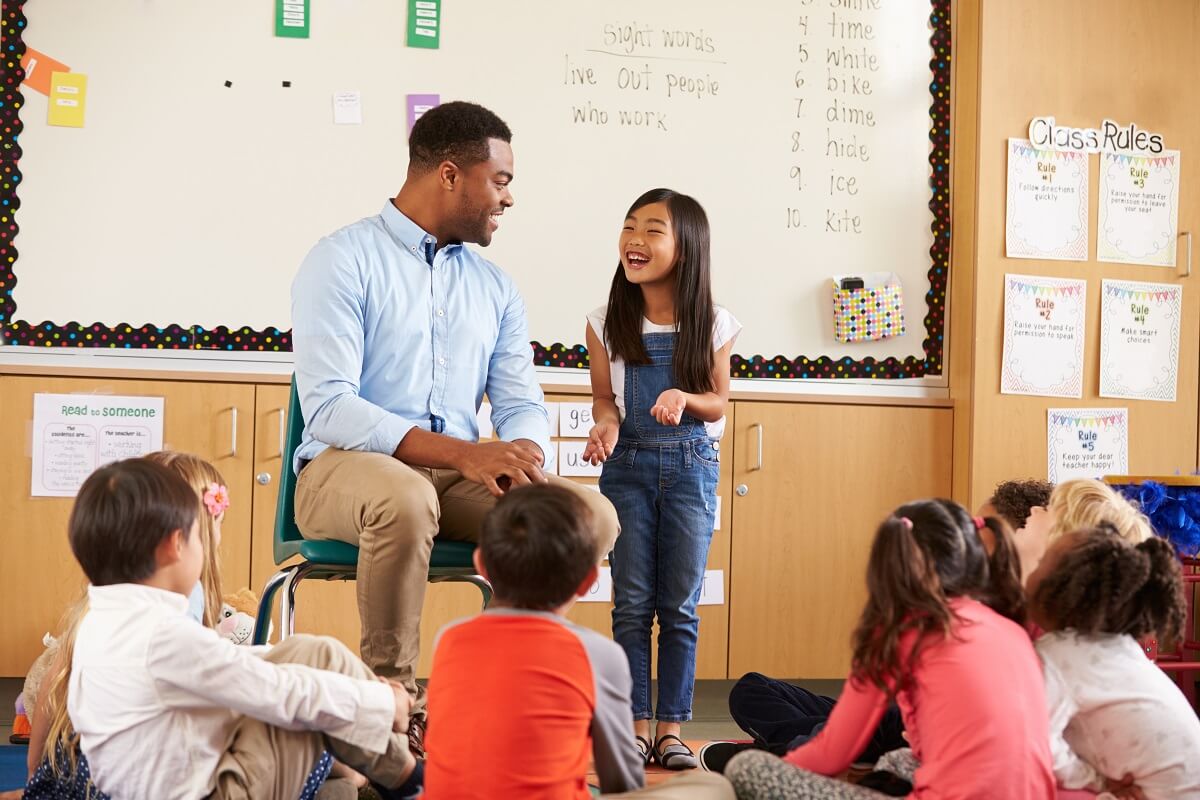
2. Board games
Teaching children manners can be a helpful way to boost social skills and explain the importance of being polite. By wishing their opponent “good luck” or “good game” before and after they’ve played, this simple, but effective activity puts an etiquette-related twist on a simple game of Chess, Checkers, or Connect Four.
3. What would you do?
Try going through different scenarios in a small group and let the kids share how they would react with questions like “How would you help?” or “What would you say?”
This activity keeps social skills sharp and reinforces relationship-building skills.
Calming activities
When a child with autism is overwhelmed, you may try some of the following simple activities to help calm them down.
1. Grounding
Try counting to 10, reciting the alphabet, listening to calming music or listing five objects in the room. You could even try yoga or stretching to improve the child’s body awareness.
2. Retreat zone
Having a designated area to help calm down can help create a kind of safety net. Put some sensory toys, picture books and comfy seats in this area to really help them take their minds of what has caused the distress in the first place.
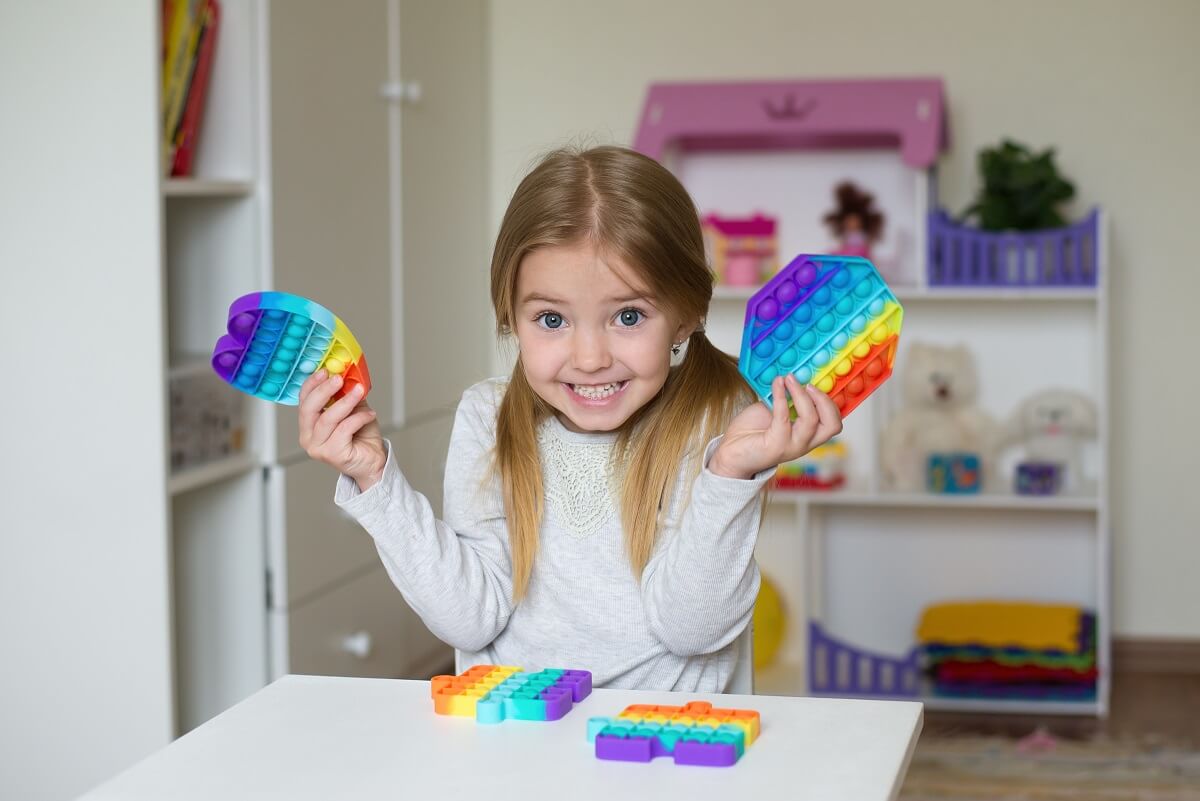
Have Fun!
Trying these activities can really show you the strengths of a child with autism as they allow kids to express themselves and show you what they’re capable of. But most importantly, they can help create a happy and playful environment for kids with special needs.
Our School Holiday programs for children include fun-filled activities in small group sessions. These programs are carefully created by experienced Occupational Therapists, Physiotherapists and Speech Pathologists to actively develop your child’s skills.
Busy Bodies Early Childhood Holiday Program
Ages:For children aged between 2 and 6
When:
- Week 1: 26th, 27th & 28th of September 2023
- Week 2: 2nd, 3rd & 4th of October 2023
Time: 9.30 – 11.30am
Location: Centenary Park Community Centre, Belmont, Western Australia
Lego Therapy Workshop
Ages: For children aged between 6 and 12
When:
- Week 1: 26th, 27th & 28th of September 2023
- Week 2: 2nd, 3rd & 4th of October 2023
Time: 12.30 – 2.00pm
Location: Centenary Park Community Centre, Belmont, Western Australia
Register for our school holiday programs now on (08) 9279 4343 or email us on hello@stjudes.com.au
For more information on our school holiday workshops for children or about our range of paediatric therapy services, get in touch with our friendly team.
|
|


